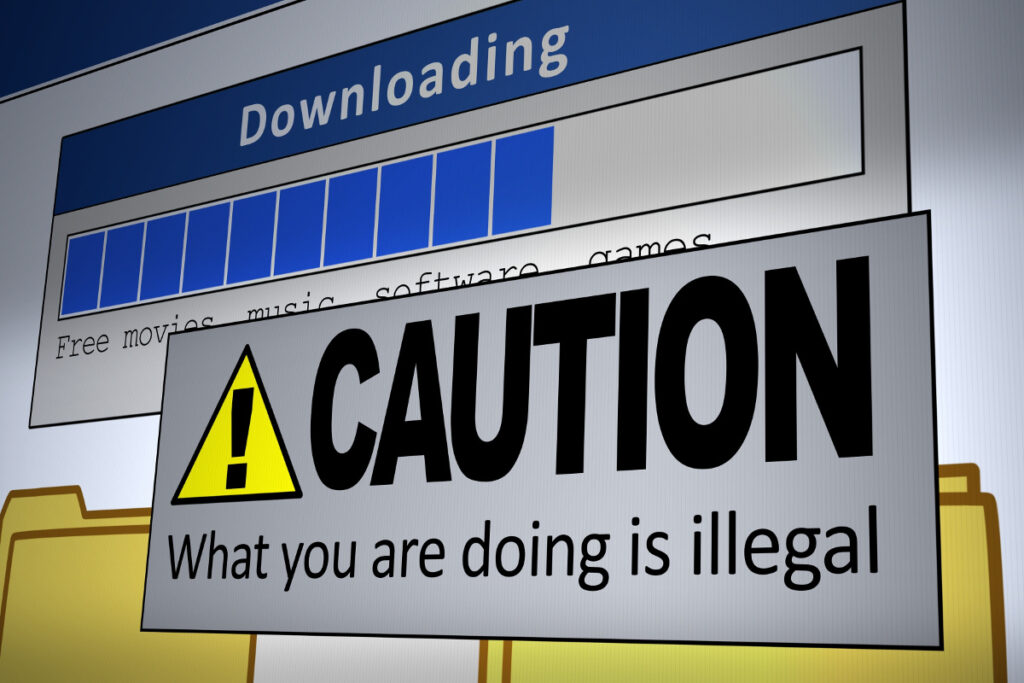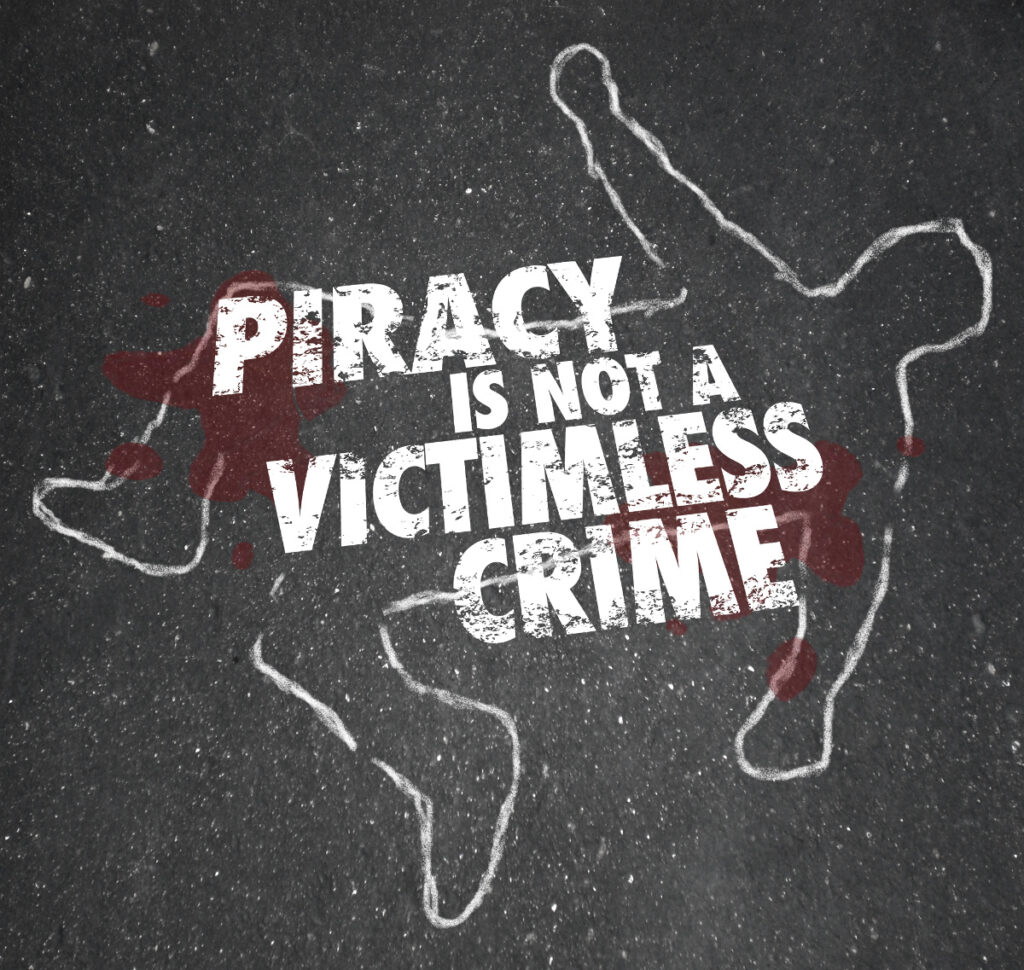Music piracy, which is the theft of copyright-protected music, continues to evolve as technology evolves. Different online activities can be considered piracy—from copying music illegally with software or mobile apps that can rip live streams, to downloading music from an unauthorized filesharing service. Learn the difference between legal and illegal methods of obtaining music.
The U.S. Copyright Law
Unauthorized Copying of Music is Illegal.
Copyright law was established to protect the rights of artists and the value of their creative work. When you make an unauthorized copy of this work, you are taking an item of value away from the owner, without their permission. Although you may be familiar with FBI warnings about unauthorized copying of movies on DVD, these messages are not often found on compact discs or music that can be downloaded from the internet. However, the same laws are in effect. Federal copyright infringement law carries serious penalties, both civil and criminal, for those who reproduce, distribute, rent or digitally transmit copyrighted sound recordings without permission. This is covered under Title 17 U.S. Code § 501 – Infringement of copyright.
What Does the Copyright Law Mean?
If you make unauthorized copies of music recordings that are copyrighted, you may be subject to civil and criminal liability. If a civil lawsuit is successful, you may have to pay thousands of dollars in damages. If you’re found guilty of criminal charges, you will have a criminal record, up to five years in jail and fines of as much as $250,000. This may sound surprising since CDs can be easily (and cheaply) copied many times with CD-R burning software. If you’re online, digital music seems entirely free. However, U.S. copyright law fully protects sound recordings, whether in physical form as CDs or as digital files. Whatever the format, the law clearly states that music recordings may not be copied or distributed without permission from the copyright owner.
What the Courts Say
Court rulings through the years have clearly indicated that both uploading and downloading copyrighted music through peer-to-peer (P2P) networks without permission from the copyright holder is copyright infringement and may be a crime.
These activities are all examples of online copyright infringement:
- You purchase a CD and make an MP3 copy (which you are allowed to do). However, you then put this MP3 on the internet using a filesharing site, so that others can download it.
- You use an app that lets you “pull” audio from a YouTube music video, and you keep this audio in your music library.
- You join a filesharing network and pay a fee to get access to copyrighted music from other members’ computers, but the filesharing site is not authorized to make copies of or distribute copyrighted music. You then download these unauthorized copies. You are guilty of copyright infringement even if you yourself don’t illegally offer music recordings to other people.
- An individual emails you a copyrighted song, which you then forward to friends.
- You use your computer’s CD burner to make CD copies of downloaded music for your friends.
- Using instant messaging, you transfer copyrighted music files.

Copying Music: What’s OK and What’s Not
These days, it’s very easy to digitally copy music. However, just because the technology makes it easy doesn’t mean it’s legal. Read these tips on how to enjoy music online while you respect artists’ rights. If you follow these guidelines, you will be supporting those that created the music you enjoy.
Internet Copying
If the website is authorized by the music’s copyright owners, it is OK to stream and download that music, whether they charge a fee or not. If the site is not authorized, it is NOT OK to download music. This includes P2P platforms like BitTorrent or web/FTP pirate sites. It is also NOT OK to make an authorized copy of music for someone else (uploading music on a P2P site).
Copying CDs
It is OK to copy music onto a CD-R, mini-disc or digital tape (since royalties have already been paid), but not for resale. Otherwise, you have no legal right to make a copy of copyrighted music from a CD to a CD-R.
However, there usually isn’t a problem if you burn a CD to a CD-R or transfer a copy to your computer or music player, so long as:
- You own the original CD.
- The copy is only for your personal use. It is against the law to give it away or lend to others to make copies.
- Copyright owners are allowed to use protection technology to prevent copying.
It is never permitted to sell or use copied music for commercial purposes.
Are there any exceptions to these copying rules? Sometimes. An unsigned band may invite you to download their music. However, bands that own their music can make it legally available by licensing it. To be safe, you shouldn’t assume that it’s legal to download or burn music because the technology is available.
Enjoy the music and support the artists by doing the right thing. You will be helping to ensure that musicians can continue to create new music.
Important Note: This information is meant to educate consumers about downloading, uploading and copying music. It should not be used for legal advice or as a complete guide to music copyright laws and commercial uses.
Sources
“Resources & Learning: About Piracy.” Recording Industry Association of America (RIAA). https://www.riaa.com/resources-learning/about-piracy/

